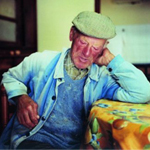 isajanNiveau 5
isajanNiveau 5
L'étude complète se trouve ici (notons qu'il s'agit d'une étude anglaise et les conclusions en faveur de la France sont donc d'autant plus intéressantes):
http://www.tla.ac.uk/site/SiteAssets/RfT1/06RE032%20Teaching%20methods%20in%20England%20and%20France%20-%20A%20comparison.pdf
1) La "literacy": 1 point pour l'Angleterre
Comprehension
Whereas the English children used inference skills extensively, and so could work out implicit messages in
the text, such as people's feelings, the French children took a more mechanistic approach. The French
children tended to quote directly from the text in the hope that this corresponded with what the question
required, and in so doing more often gave an inappropriate response. The researchers found that even when
English children were getting wrong answers, they were still attempting to infer information rather than trying
to find it word-for-word in the text. (...)
Use of tenses, spelling and punctuation
Although French schools emphasised form and quality of expression in composition work, this did not
necessarily give French children the edge on the formal aspects of writing, such as the use of punctuation and
spelling. Furthermore, English children performed better than French children in the set grammar tests. They
also demonstrated a more consistent use of tenses in their writing: 42 per cent of French children made at least one error in their story writing, compared with 24 per cent of English children.
These results sat oddly with the amount of time that French children spent on learning formal aspects of the
language. For example, nearly 6 per cent of time was spent on verb conjugations. However, the authors
referred to the more extensive use of language in the English primary classroom, as opposed to the French
emphasis on structure, as possibly being more beneficial to the development of these skills. Observations
showed that English pupils spent a greater proportion of classroom time on reading (10 per cent compared
with 3 per cent) and writing (19 per cent compared with 1.5 per cent in France).
Story writing
The researchers found national differences in children's story writing. These were especially marked for
children attending schools in more affluent areas. Higher achieving English children's stories contained a
greater use of imaginative vocabulary and descriptive passages. For example:
"I walked off into the inky darkness of the room. Everything was bare except for large flaring torches nailed
to the wall."
2) Maths: 1 point pour la France mais les élèves des deux pays ont mieux répondu à des tests similaires à leurs tests nationaux
How did the pupils' mathematical skills compare?
Overall, English children performed better than the French cohort in their own national mathematics tests, and
vice versa. More detailed differences emerged along national lines in relation to specific aspects of
performance in particular mathematical skills.
English children were also better able to apply their maths knowledge in a problem-solving investigation
which required them to identify and formulate rules for adding and subtracting odd and even numbers.
3) Sur l'organisation de la classe
Teachers may like to consider the following implications for practice:
The greater use of group work in English classrooms seemed to be linked to higher levels of pupil distraction. We
know from recent evidence that teachers need to scaffold and structure group work for children to benefit from the
collaborative learning that can take place. What group work arrangements, in your experience, engage children and
give them an incentive to stay on task?
French children felt they worked hard at school, and spent more time on task, and yet they also expressed more
pleasure and interest in their work than English children. How can you keep the focus on enjoyment and engagement
in the classroom while at the same time maintaining effortful learning?
English teachers seemed under more pressure than French teachers to provide interesting lessons.
http://www.tla.ac.uk/site/SiteAssets/RfT1/06RE032%20Teaching%20methods%20in%20England%20and%20France%20-%20A%20comparison.pdf
1) La "literacy": 1 point pour l'Angleterre
Comprehension
Whereas the English children used inference skills extensively, and so could work out implicit messages in
the text, such as people's feelings, the French children took a more mechanistic approach. The French
children tended to quote directly from the text in the hope that this corresponded with what the question
required, and in so doing more often gave an inappropriate response. The researchers found that even when
English children were getting wrong answers, they were still attempting to infer information rather than trying
to find it word-for-word in the text. (...)
Use of tenses, spelling and punctuation
Although French schools emphasised form and quality of expression in composition work, this did not
necessarily give French children the edge on the formal aspects of writing, such as the use of punctuation and
spelling. Furthermore, English children performed better than French children in the set grammar tests. They
also demonstrated a more consistent use of tenses in their writing: 42 per cent of French children made at least one error in their story writing, compared with 24 per cent of English children.
These results sat oddly with the amount of time that French children spent on learning formal aspects of the
language. For example, nearly 6 per cent of time was spent on verb conjugations. However, the authors
referred to the more extensive use of language in the English primary classroom, as opposed to the French
emphasis on structure, as possibly being more beneficial to the development of these skills. Observations
showed that English pupils spent a greater proportion of classroom time on reading (10 per cent compared
with 3 per cent) and writing (19 per cent compared with 1.5 per cent in France).
Story writing
The researchers found national differences in children's story writing. These were especially marked for
children attending schools in more affluent areas. Higher achieving English children's stories contained a
greater use of imaginative vocabulary and descriptive passages. For example:
"I walked off into the inky darkness of the room. Everything was bare except for large flaring torches nailed
to the wall."
2) Maths: 1 point pour la France mais les élèves des deux pays ont mieux répondu à des tests similaires à leurs tests nationaux
How did the pupils' mathematical skills compare?
Overall, English children performed better than the French cohort in their own national mathematics tests, and
vice versa. More detailed differences emerged along national lines in relation to specific aspects of
performance in particular mathematical skills.
English children were also better able to apply their maths knowledge in a problem-solving investigation
which required them to identify and formulate rules for adding and subtracting odd and even numbers.
3) Sur l'organisation de la classe
Teachers may like to consider the following implications for practice:
The greater use of group work in English classrooms seemed to be linked to higher levels of pupil distraction. We
know from recent evidence that teachers need to scaffold and structure group work for children to benefit from the
collaborative learning that can take place. What group work arrangements, in your experience, engage children and
give them an incentive to stay on task?
French children felt they worked hard at school, and spent more time on task, and yet they also expressed more
pleasure and interest in their work than English children. How can you keep the focus on enjoyment and engagement
in the classroom while at the same time maintaining effortful learning?
English teachers seemed under more pressure than French teachers to provide interesting lessons.
 henrietteMédiateur
henrietteMédiateur
Isajan, merci d'éditer ton message pour le remettre en page de façon plus cohérente. Les retours à la ligne intempestifs rendent en effet très pénible la lecture du texte cité, d'autant qu'il est en langue étrangère.
_________________
"Il n'y a que ceux qui veulent tromper les peuples et gouverner à leur profit qui peuvent vouloir retenir les hommes dans l'ignorance."
 isajanNiveau 5
isajanNiveau 5
Le mieux étant de cliquer sur le lien pour lire l'étude complète. Il y a des passages intéressants qui montrent que la France enseigne toujours en classe complète, malgré la loi d'orientation de 1989. Et qui par ailleurs encouragent l'Angleterre à le faire.
En revanche la réforme sur l'enseignement de la lecture en Angleterre porte clairement ses fruits.
En revanche la réforme sur l'enseignement de la lecture en Angleterre porte clairement ses fruits.
 henrietteMédiateur
henrietteMédiateur
Le mieux étant aussi de remettre en page ce que tu cites (ou de supprimer cette citation si elle est ne te semble pas très utile au regard du lien ?) 

_________________
"Il n'y a que ceux qui veulent tromper les peuples et gouverner à leur profit qui peuvent vouloir retenir les hommes dans l'ignorance."
 isajanNiveau 5
isajanNiveau 5
henriette a écrit:Le mieux étant aussi de remettre en page ce que tu cites (ou de supprimer cette citation si elle est ne te semble pas très utile au regard du lien ?)
En fait, et très sincèrement, je ne comprends pas ce qui est gênant? je trouve le texte parfaitement lisible.
 henrietteMédiateur
henrietteMédiateur
Pas moi. Je suis gênée par ces retours à la ligne intempestifs. Est-ce si considérable comme correction à faire ? Je ne comprends pas bien.
_________________
"Il n'y a que ceux qui veulent tromper les peuples et gouverner à leur profit qui peuvent vouloir retenir les hommes dans l'ignorance."
 lumeekaExpert spécialisé
lumeekaExpert spécialisé
Le souci est que certaines phrases se finissent à mi chemin avant de continuer sur une nouvelle ligne - la partie sur les mathématiques.
_________________
Animals are my friends... and I don't eat my friends. George Bernard Shaw
https://www.facebook.com/sansvoixpaca/
http://www.nonhumanrightsproject.org/about-us-2/
 isajanNiveau 5
isajanNiveau 5
lumeeka a écrit:Le souci est que certaines phrases se finissent à mi chemin avant de continuer sur une nouvelle ligne - la partie sur les mathématiques.
Ah. Ce sont des bullet points dans le texte initial. Je vais corriger.
 lumeekaExpert spécialisé
lumeekaExpert spécialisé
No worries, cela m'est déjà arrivé. 

_________________
Animals are my friends... and I don't eat my friends. George Bernard Shaw
https://www.facebook.com/sansvoixpaca/
http://www.nonhumanrightsproject.org/about-us-2/
 henrietteMédiateur
henrietteMédiateur
Merci.
_________________
"Il n'y a que ceux qui veulent tromper les peuples et gouverner à leur profit qui peuvent vouloir retenir les hommes dans l'ignorance."
 coindeparadisGuide spirituel
coindeparadisGuide spirituel
La loi de 1989 n'empêche pas d'enseigner en classe entière en primaire !!! 

_________________
Ne t'excuse jamais d'être ce que tu es. Gandhi
 isajanNiveau 5
isajanNiveau 5
coindeparadis a écrit:La loi de 1989 n'empêche pas d'enseigner en classe entière en primaire !!!
bah non pourquoi?
 coindeparadisGuide spirituel
coindeparadisGuide spirituel
C'est ce que j'avais compris dans ce passage.isajan a écrit:Le mieux étant de cliquer sur le lien pour lire l'étude complète. Il y a des passages intéressants qui montrent que la France enseigne toujours en classe complète, malgré la loi d'orientation de 1989. Et qui par ailleurs encouragent l'Angleterre à le faire.
En revanche la réforme sur l'enseignement de la lecture en Angleterre porte clairement ses fruits.
_________________
Ne t'excuse jamais d'être ce que tu es. Gandhi
 Luigi_BGrand Maître
Luigi_BGrand Maître
Rappelons qu'entre PISA 2000 et PISA 2012 (élèves à quinze ans), le Royaume-Uni a dévissé de 5% (une des plus fortes baisses, derrière la Suède).
_________________
LVM Dernier billet : "Une École si distante"
- Comparaison des programmes d'histoire du primaire en France et aux Etats-Unis
- Le gagnant de la Star Ac 2006 est aujourd'hui prof d'anglais
- Primaire-collège : tous les nouveaux programmes sont repoussés d'un an, mais il y aura des aménagements en primaire dès 2014.
- DEPP : Résultats en fin de collège 2006 - 2012
- La répartition des notes au baccalauréat 2006-2013
Permission de ce forum:
Vous ne pouvez pas répondre aux sujets dans ce forum




